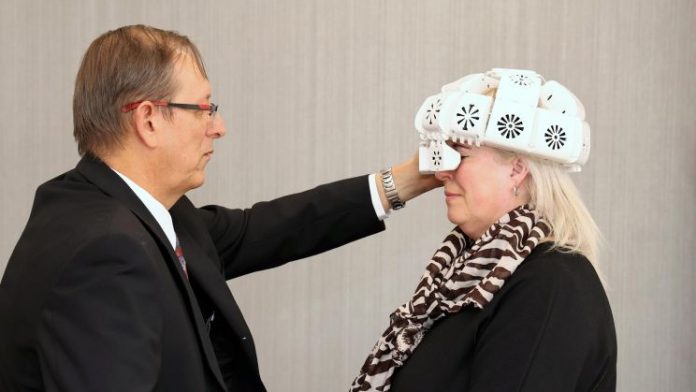A light-beaming helmet using infrared light could boost dementia patients’ memory and muscle control. Dr. Paul Chazot, in the Department of Biosciences, Durham University, in the UK led the study. And his research was published in the journal Photobiomodulation, Photomedicine And Laser Surgery on Monday.
In the last two decades, a large body of scientific research has been done on the beneficial effects of infrared light in the range of 600 to 1000 nm. It has been reported that infrared laser treatment may be an effective treatment of TBI, PTSD, and depression.
Animal studies have shown that infrared photobiomodulation or PBM may reduce the size and severity of brain injury and stroke. According to Michael Hamblin, Ph.D., from the Wellman Center for Photomedicine at Massachusetts General Hospital in Boston studies have shown infrared light can diminish damage and physiological symptoms in depression, posttraumatic stress disorder (PTSD), Parkinson’s, and Alzheimer disease.
Hamblin describes “the use of red or near-infrared light to stimulate, heal, regenerate, and protect tissue that has either been injured, is degenerating, or else is at risk of dying.”
Light-beaming helmet shows results
The Durham University study shows that infrared light is self-delivered to the brain using the helmet. The helmet works by increasing blood flow so the brain gets more oxygen.






